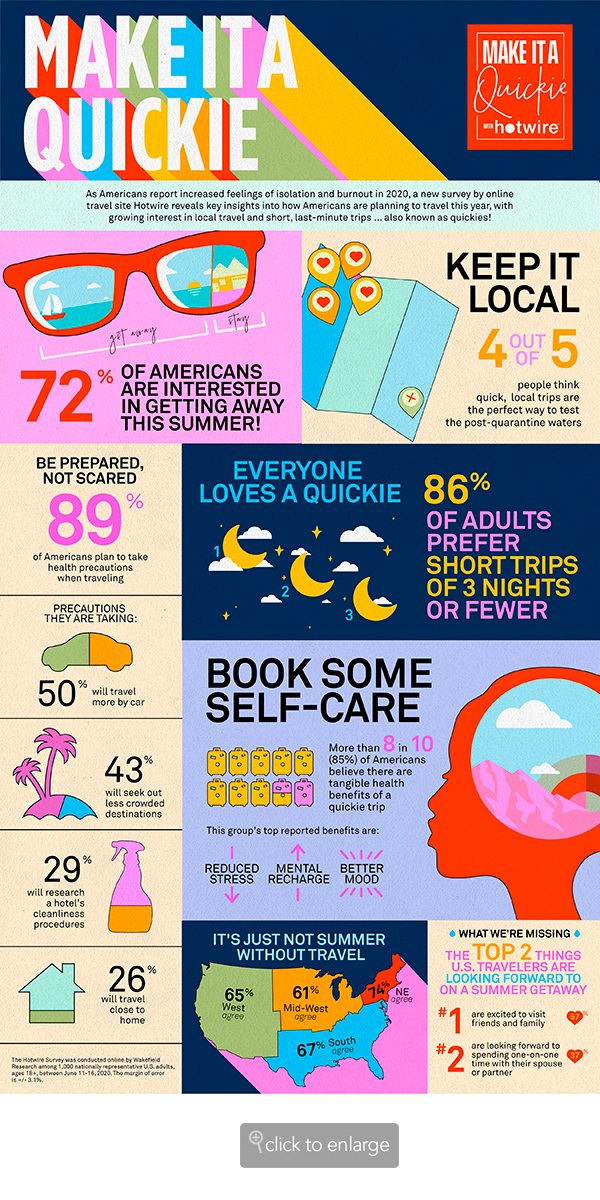Many Americans’ summer vacation plans have been delayed or canceled due to safety concerns. However, making time for a mental break is important as individuals attempt to manage ongoing stress related to COVID-19.
Americans are reporting feelings of isolation, burnout and a need of a break after months of quarantine. Nearly two-thirds (62%) of Americans haven’t taken a vacation day, much less a trip, since the coronavirus outbreak earlier this year, according to a survey conducted by travel website Hotwire.
Interest in local travel and shorter trips, however, is growing. In fact, 72% of Americans are still planning or are interested in summer travel this year, despite a desire to take additional precautions to stay healthy.
“It’s important to not only flatten the COVID-19 curve, but also the mental health curve,” said Dr. Mike Dow, a brain-health expert and “New York Times” best-selling author. “A short getaway can be a long-term investment in your mental well-being. Changing your surroundings can actually boost dopamine in the brain, which can improve your mood and energy, and provide a much-needed self-care boost.”

If you’re looking to test the travel waters, consider these tips from Hotwire and Dow on how to be prepared, not scared, when traveling:
Make it short and sweet. Quick breaks can provide benefits similar to those of a longer vacation, and even a brief change of scenery can help you recharge. An overnight or weekend trip can be enough to give your brain the rest it needs.
Book at the last minute. Consider booking a trip shortly before you want to depart so there’s no risk of your plans changing due to unexpected travel restrictions. Many hotels and travel sites now list the cleanliness and safety measures being taken, so you can take this into account when booking your accommodations. Despite what you may think, you can also take advantage of last-minute discounts on booking sites like Hotwire, whose Hot Rate deals often get even better the week before departure.
Do your pre-trip research. It’s important to check for the most recent local or regional travel recommendations in both your city and your destination before you plan a trip. Look into what facilities are open and whether occupancy limits or reservation requirements may affect your plans. Also check into any travel limitations and whether you will be subject to quarantine upon arrival or after visiting certain locations.
Stay close to home. Consider local destinations or those within easy driving distance. It’s the change in routine, rather than how far you go, that can benefit your mental health, so explore a city close to home while reaping the same restorative benefits of a more exotic location.
For more information on how to travel safely, or to find last-minute travel deals, visit hotwire.com or download the app.
Photo caption: Dr. Mike Dow
SOURCE:
Hotwire








































